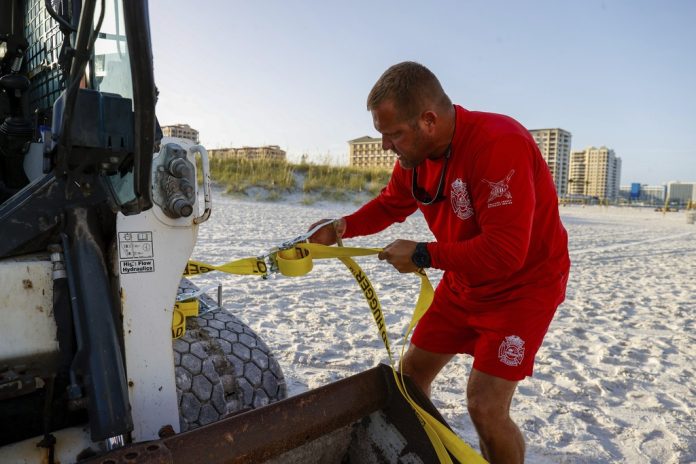It’s an area of low atmospheric pressure, thunderstorms and wind sloshing out of the Caribbean Sea across Cuba, into the Gulf of Mexico and toward Florida. But by the time it dissipates, weather forecasters may have called it by five different names.
First it was Invest 97L, then it was Potential Tropical Cyclone Four. Late Friday as it strengthened it became Tropical Depression Four. It’s expected to become Tropical Storm Debby on Saturday, and it could intensify into Hurricane Debby on Sunday or Monday.
The various names are used to classify the intensity of a storm in the Atlantic Ocean and the eastern and central Pacific Ocean. Most storms start as an area of intense thunderstorms before they develop the cyclonic rotation of winds moving around in a circle, sometimes around a clear eye.
In the Northern Hemisphere, those winds move counterclockwise, while in the Southern Hemisphere they move clockwise.
Why did the storm start as ‘Invest 97L’?
Before the National Hurricane Center issued its first advisory on the system Friday, it was referred to as “Invest 97L.” Jack Beven, senior hurricane specialist at the National Hurricane Center, said “invest,” short for investigation, is mostly an internal designation used to designate a tropical wave or area of disturbed weather that forecasters want to watch.
Beven said an invest does not necessarily mean the system is more dangerous or close to becoming a tropical cyclone, but serves as a status marker that a disturbance has reached the point where the agency can follow it.
“It’s a little bit of an indicator that the system has gotten more interesting,” Beven said.
The weather agency uses the letter “L” to designate its location in the Atlantic, Beven said. The agency cycles through the numerals 90-99 to name and keep track of the systems.
What’s the difference between a depression, tropical storm and hurricane?
By Friday, the National Hurricane Center was confident that Invest 97L was going to grow into something more serious.
The agency’s first advisory Friday signaled the system’s growing strength, calling it Potential Tropical Cyclone Four. Late Friday, the storm became a tropical depression, signifying that it was organizing itself into a cyclone, but still had 1-minute sustained winds of less than 39 miles (62 kilometers) per hour.
Forecasters expect the storm to keep getting stronger. Once they judge that it has passed the 39 mph mark, it will get a name: Tropical Storm Debby.
If a tropical storm ‘s winds reach 74 mph (119 kph), it gets reclassified as a hurricane.
In the Atlantic basin, hurricanes are classified based on their wind speeds on a scale of 1 to 5, with 1 being the weakest and 5 being the strongest. However, wind strength doesn’t signify how much tidal storm surge a hurricane could push into coastal areas, or how much rain it might bring.
Some of the rainiest tropical systems don’t even make it to hurricane status, like 2001’s Tropical Storm Allison, which caused billions of dollars of flood damage in and around Houston.
What did Debby do to deserve a storm name?
Forecasters started naming storms following World War II to better communicate threats to the public. Before that, storms mostly got names retrospectively, and they could vary — like the 1900 Galveston Hurricane, the 1935 Labor Day Hurricane, or the Great New England Hurricane of 1938.
At first, forecasters only named hurricanes for women, but by 1979 male names were also being used. The World Meteorological Organization adopts a different list of names each year for each major tropical cyclone region worldwide. The Atlantic names are used on a six-year rotation.
Is the naming system the same worldwide?
Nope. Intense tropical cyclones in the western Pacific and near Japan and Asia are called typhoons. Those around India are called cyclonic storms. And around Australia and in the southwest Pacific Ocean, they’re called tropical cyclones
There are some similarities in the intensity scales. For example, the wind threshold to become a hurricane in the Gulf of Mexico is the same as to become a typhoon in Asia or a very severe cyclonic storm near India.
Source: post





